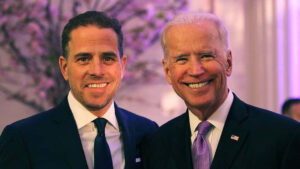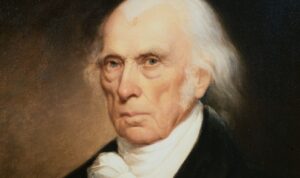Thinking of Getting Your Book Published? Don’t Ask Me!

At long last, you’ve finished that book you’ve been meaning to write for the last 15 years. Congratulations! You have accomplished something that only one in a hundred do. You have a right to be proud of yourself. And you are excited about the next step: finding a publisher for it.
It feels like once every month I get a request from a friend, acquaintance, or reader who, knowing I’m in the publishing business, presumes I can help him or her get a manuscript published.
As a courtesy and with a sprig of curiosity, I agree to review the manuscript. But even as I make this offer, I’m 99.9% certain I won’t be able to help. That’s because few people understand how traditional book publishing works. And because of that, they have completely unrealistic expectations. Also – and this is something I will say only if I think it will help – the manuscript is probably not good enough for publication.
After reviewing a manuscript last week, I replied with a more definitive than usual “no” – a longer-than-normal explanation of why, and a suggested remedy. I’m reprinting it here for anyone reading this who has a book and is looking for a publisher.
“You have put a fair amount of work into writing this. And I can see from your CV that you are very interested in and engaged with self-improvement strategies. So I don’t want to waste your time by encouraging you to try to get this published by a traditional publisher.
“To understand why, you need to understand how that industry works. Here are some useful facts…
“Publishers aren’t hungry to publish new writers. That’s because they know that 95% of books published by new writers in America will sell, at best, just a few hundred copies.
“Even with the new, less-expensive technology for typesetting and printing books, the investment in producing a new book is usually more than $5,000. If 95 out of 100 new books fail so miserably, that means that each of the five books that do make money must net at least $100,000.
“The first book that I wrote that was published traditionally (by John Wiley & Sons) sold somewhere between 100,000 and 150,000 copies. That put it on the NYT bestseller list for a week or two. But it hardly made me a superstar with John Wiley.
“Authors that can sell at those levels are certainly appreciated by conventional publishers. But they are hardly cherished. The combined dollars they bring in every year may be enough to pay for the printing of the 95 books that fail. But they are not enough to pay for the salaries of their employees, among other costs, let alone provide profits for their shareholders.
“All that money is covered by the real bestselling authors. Writers like J.K. Rowling, James Patterson, and John Grisham, who have sold 500 million, 450 million, and 300 million books, respectively.
“Think about that. Five hundred million books sold at an average of $15 a book is $7.5 billion!
“What does this mean for an aspiring author like you?
“It means that, even if they like your book, there is a 95% chance that it will be a big, fat money loser. But it will cost the publishing company – even taking advantage of the new printing technology – between $5,000 and $10,000. Because they know this to be true, all the large publishers have dozens of recent college graduates working for them whose sole job is to give such manuscripts a quick scan and then send out a ‘sorry’ note.
“There are some exceptions. If, for example, the author is a celebrity. If the author is a well-known politician. If the author or the subject of the book is temporarily famous for committing mass murder. Or if the author is a social media ‘influencer’ with at least a million subscribers.
“When John Wiley agreed to publish my book, Automatic Wealth, I was writing and publishing a blog (Early to Rise) that had 900,000 subscribers. Today, with considerably fewer (but much higher quality) readers, any manuscript I sent them would be quickly ‘handled’ by one of their recent college grads.
“Which is to say, my advice is to forget about finding a conventional publisher for the moment. You should do what I did to get Automatic Wealth on the bestseller list: Build an audience.
“You can do that by starting a blog or a YouTube channel. Then work very hard on that. Work on improving the content – crafting ideas that are unique and uniquely marketable. Work on perfecting the delivery and the format to get your open-and-read rates to bestselling standards. And work on building your subscriber base until it reaches 10,000 and then 50,000, and eventually… who knows?
“If you hit a million subscribers, you will have a good chance of finding a conventional publisher to publish and promote your book. But don’t expect a huge signing bonus. As an unproven author (notwithstanding your big fan base), you’ll be lucky to get $20,000 plus a conventional royalty of 4% to 7% of sales.
“Or, at that point, you can publish the book yourself and sell it directly to your fans. If you do it that way, you will keep between 60% and 80% of the revenues (depending on whether the book is printed or digital).”
Speaking of selling the books you write, readers of this blog can order a copy of my book, Automatic Wealth, directly from us. List price is $24.95. But for you, the price is $15 (which includes free shipping).
To order your copy:
* Send a check for $15.
* Make the check payable to Cap & Bells Press, LLC. (No cash, please.)
* Include your name and mailing address and mail it to:
Cap & Bells Press
Attn: GKoo
290 SE 2nd Avenue
Delray Beach, FL 33444
 MarkFord
MarkFord











